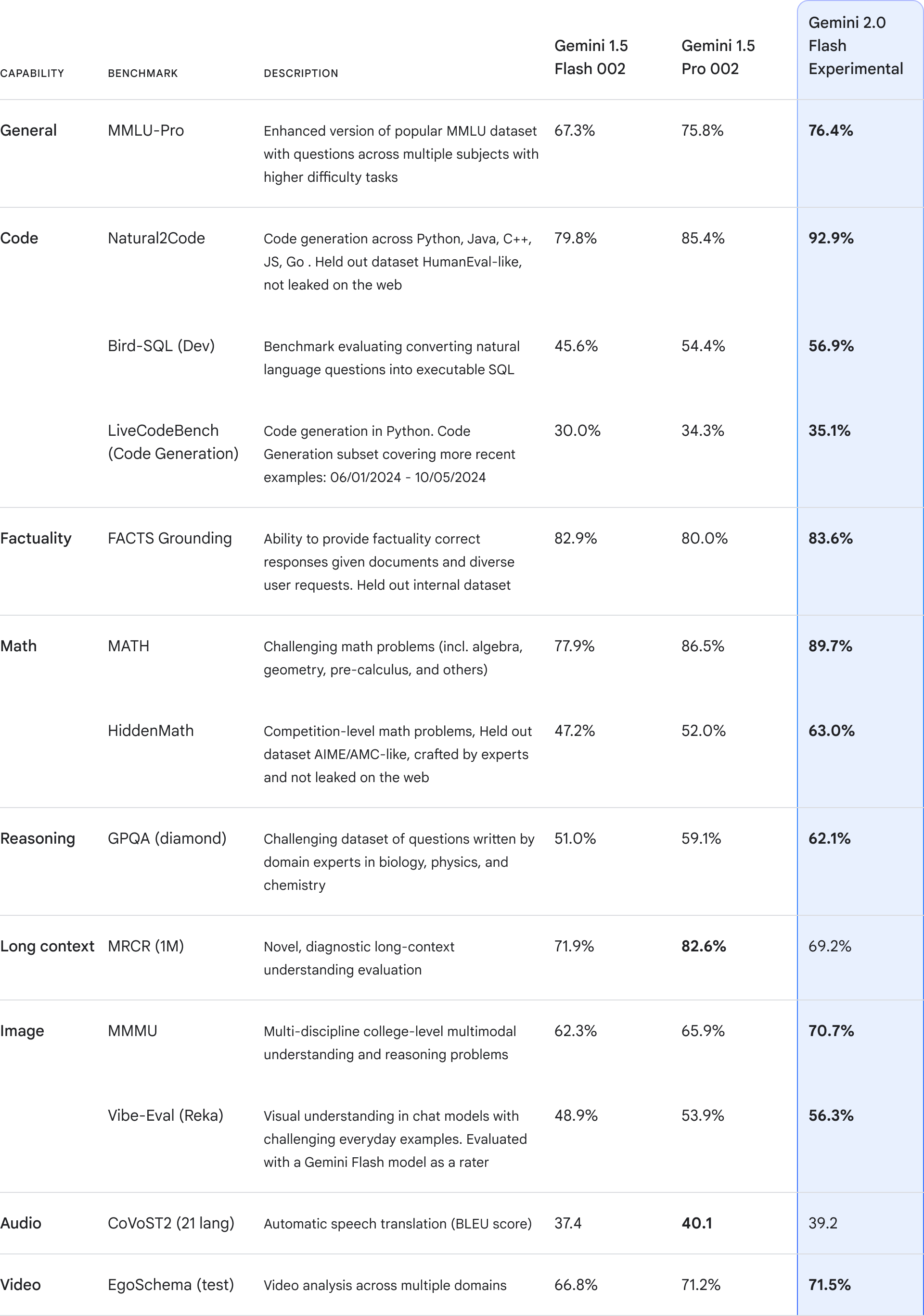A note from Google and Alphabet CEO Sundar Pichai:
Information is at the core of human progress. It’s why we’
ve focused for more than 26 years on our mission to organize the world’s information and make it accessible and useful. And it’s why we continue to push the frontiers of AI to organize that information across every input and make it accessible via any output, so that it can be truly useful for you.
2.0’s advances are underpinned by decade-long investments in our differentiated full-stack approach to AI innovation. It’s built on custom hardware like Trillium, our sixth-generation TPUs. TPUs powered 100% of Gemini 2.0 training and inference, and today Trillium is generally available to customers so they can build with it too.
By Demis Hassabis, CEO of Google DeepMind and Koray Kavukcuoglu, CTO of Google DeepMind on behalf of the Gemini team
Over the past year, we have continued to make incredible progress in artificial intelligence. Today, we are releasing the first model in the Gemini 2.0 family of models: an experimental version of Gemini 2.0 Flash. It’s our workhorse model with low latency and enhanced performance at the cutting edge of our technology, at scale.
We are also sharing the frontiers of our agentic research by showcasing prototypes enabled by Gemini 2.0’s native multimodal capabilities.
Gemini 2.0 Flash
Gemini 2.0 Flash builds on the success of 1.5 Flash, our most popular model yet for developers, with enhanced performance at similarly fast response times. Notably, 2.0 Flash even outperforms 1.5 Pro on key benchmarks, at twice the speed. 2.0 Flash also comes with new capabilities. In addition to supporting multimodal inputs like images, video and audio, 2.0 Flash now supports multimodal output like natively generated images mixed with text and steerable text-to-speech (TTS) multilingual audio. It can also natively call tools like Google Search, code execution as well as third-party user-defined functions.

Our goal is to get our models into people’s hands safely and quickly. Over the past month, we’ve been sharing early, experimental versions of Gemini 2.0, getting great feedback from developers.
Gemini 2.0 Flash is available now as an experimental model to developers via the Gemini API in Google AI Studio and Vertex AI with multimodal input and text output available to all developers, and text-to-speech and native image generation available to early-access partners. General availability will follow in January, along with more model sizes.
To help developers build dynamic and interactive applications, we’re also releasing a new Multimodal Live API that has real-time audio, video-streaming input and the ability to use multiple, combined tools. More information about 2.0 Flash and the Multimodal Live API can be found in our developer blog.
Gemini 2.0 available in Gemini app, our AI assistant
Also starting today, Gemini users globally can access a chat optimized version of 2.0 Flash experimental by selecting it in the model drop-down on desktop and mobile web and it will be available in the Gemini mobile app soon. With this new model, users can experience an even more helpful Gemini assistant.
Early next year, we’ll expand Gemini 2.0 to more Google products.
Unlocking agentic experiences with Gemini 2.0
Gemini 2.0 Flash’s native user interface action-capabilities, along with other improvements like multimodal reasoning, long context understanding, complex instruction following and planning, compositional function-calling, native tool use and improved latency, all work in concert to enable a new class of agentic experiences.
The practical application of AI agents is a research area full of exciting possibilities. We’re exploring this new frontier with a series of prototypes that can help people accomplish tasks and get things done. These include an update to Project Astra, our research prototype exploring future capabilities of a universal AI assistant; the new Project Mariner, which explores the future of human-agent interaction, starting with your browser; and Jules, an AI-powered code agent that can help developers.
We’re still in the early stages of development, but we’re excited to see how trusted testers use these new capabilities and what lessons we can learn, so we can make them more widely available in products in the future
Information picked up from reference:https://blog.google/technology/google-deepmind/google-gemini-ai-update-december-2024/#gemini-2-0-flash


.jfif)
.jfif)



.jfif)
.jfif)

.jpg)
No comments: